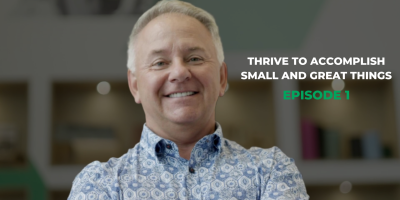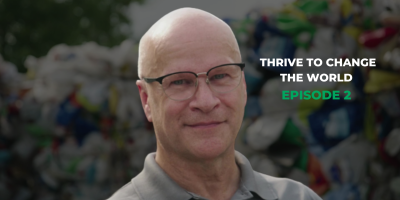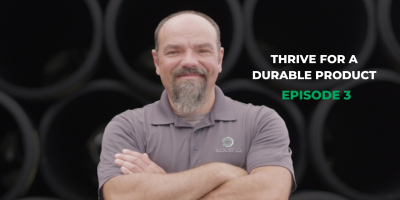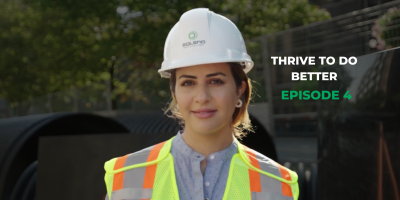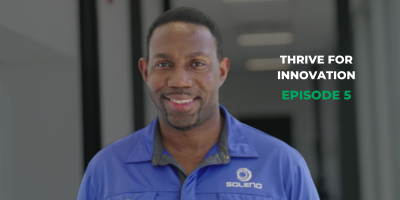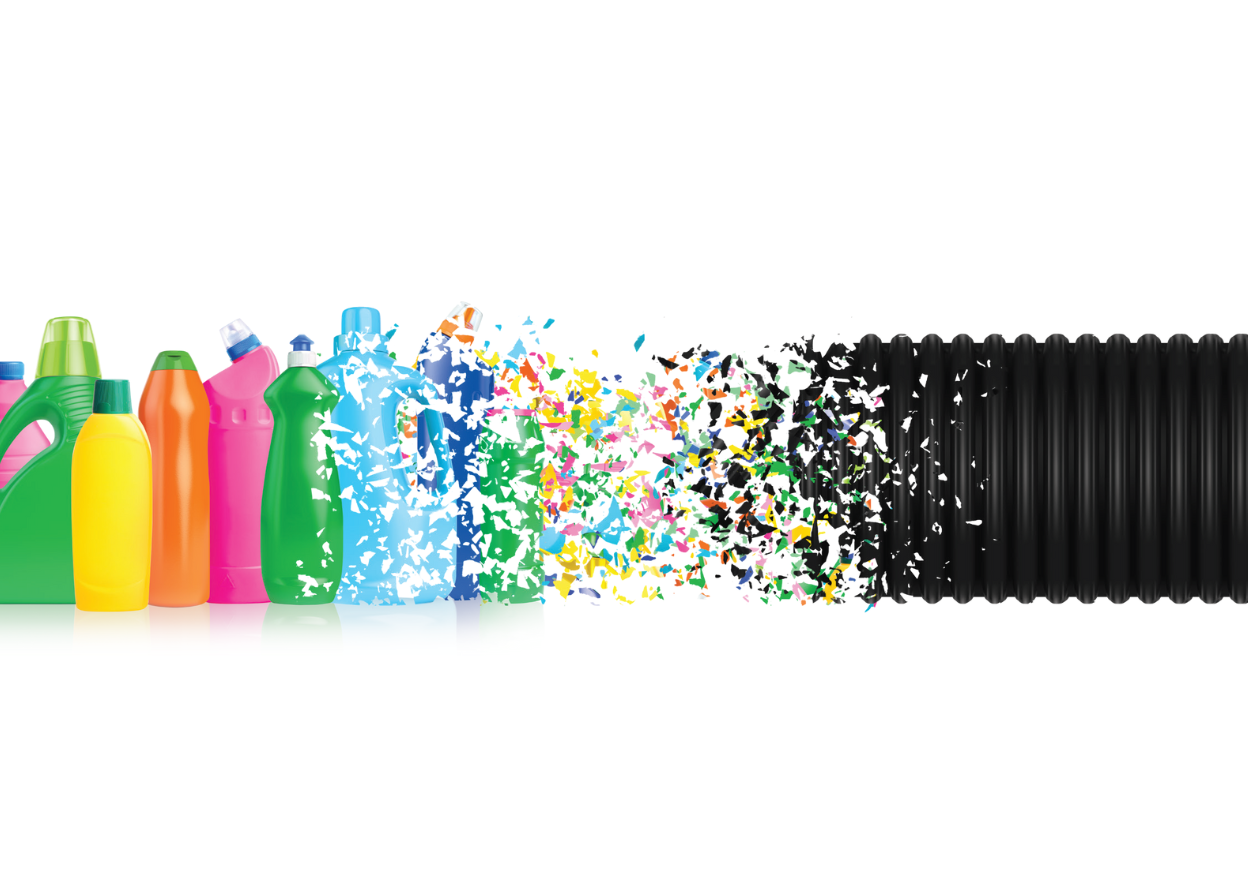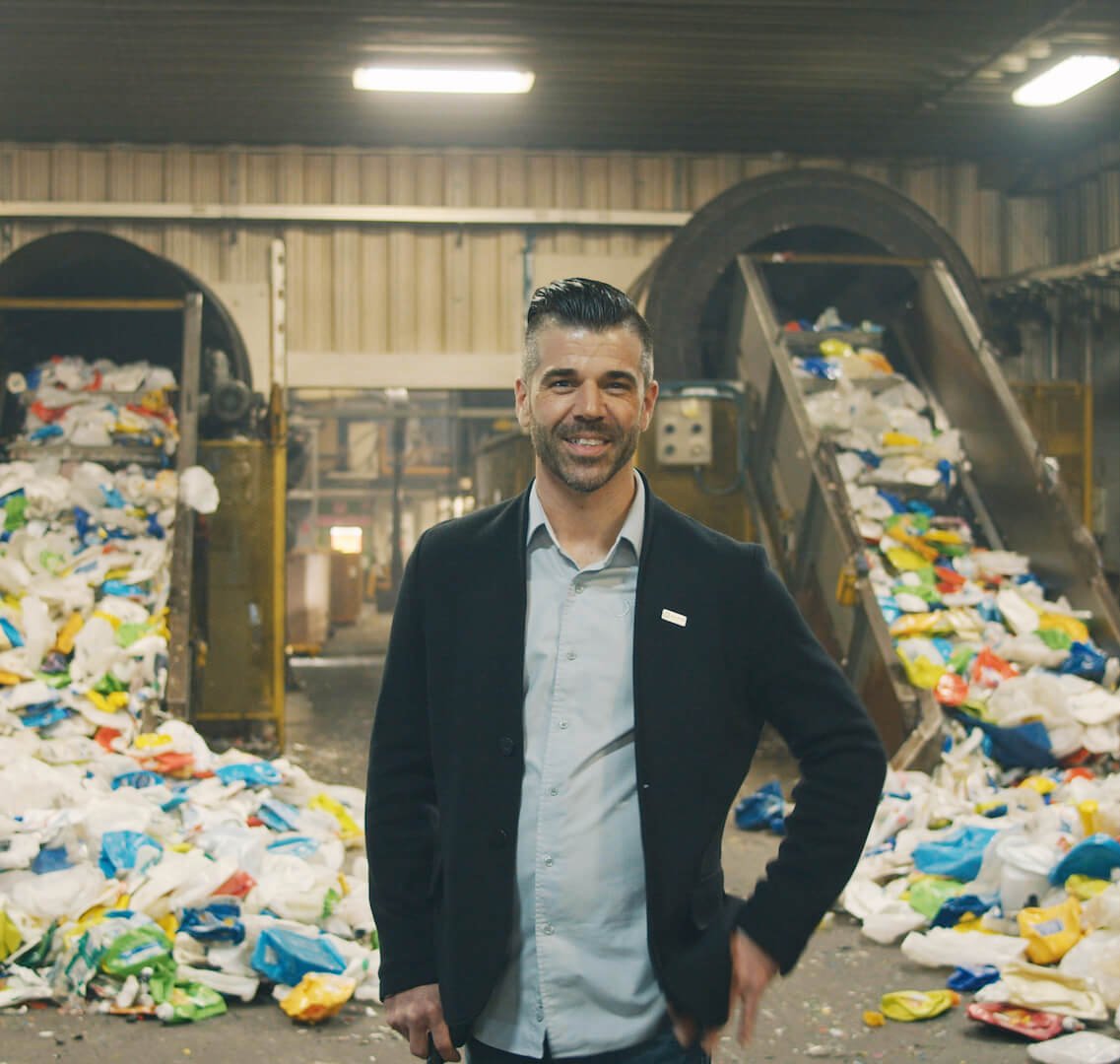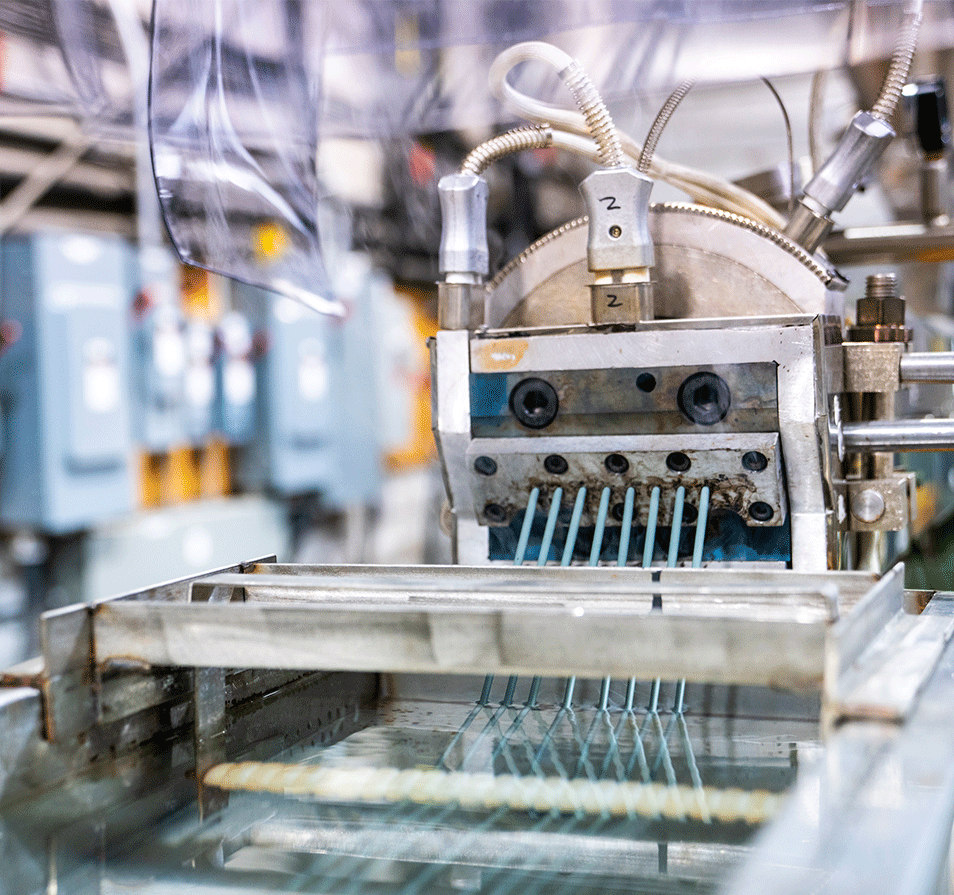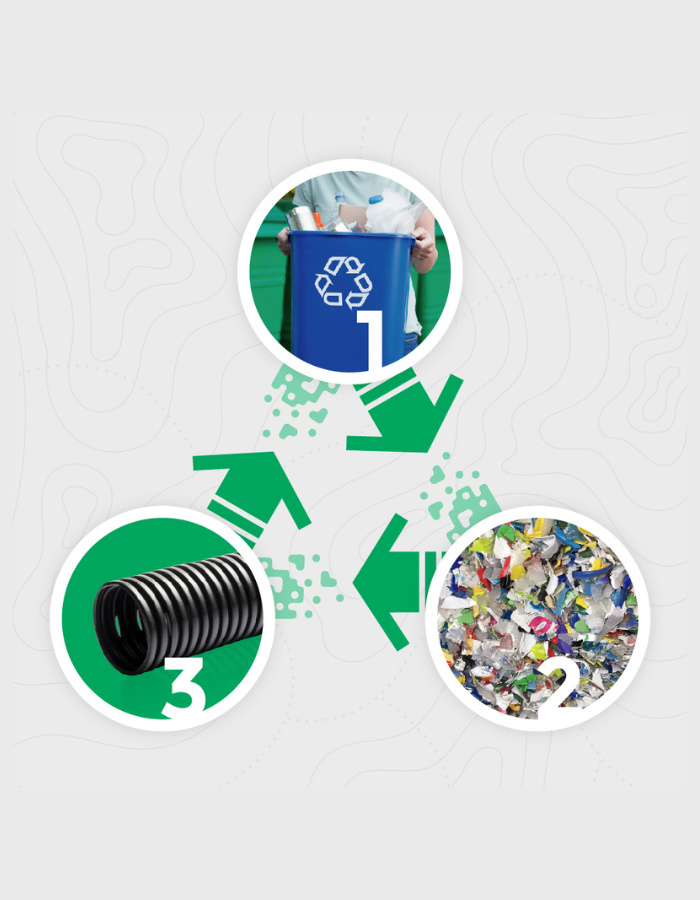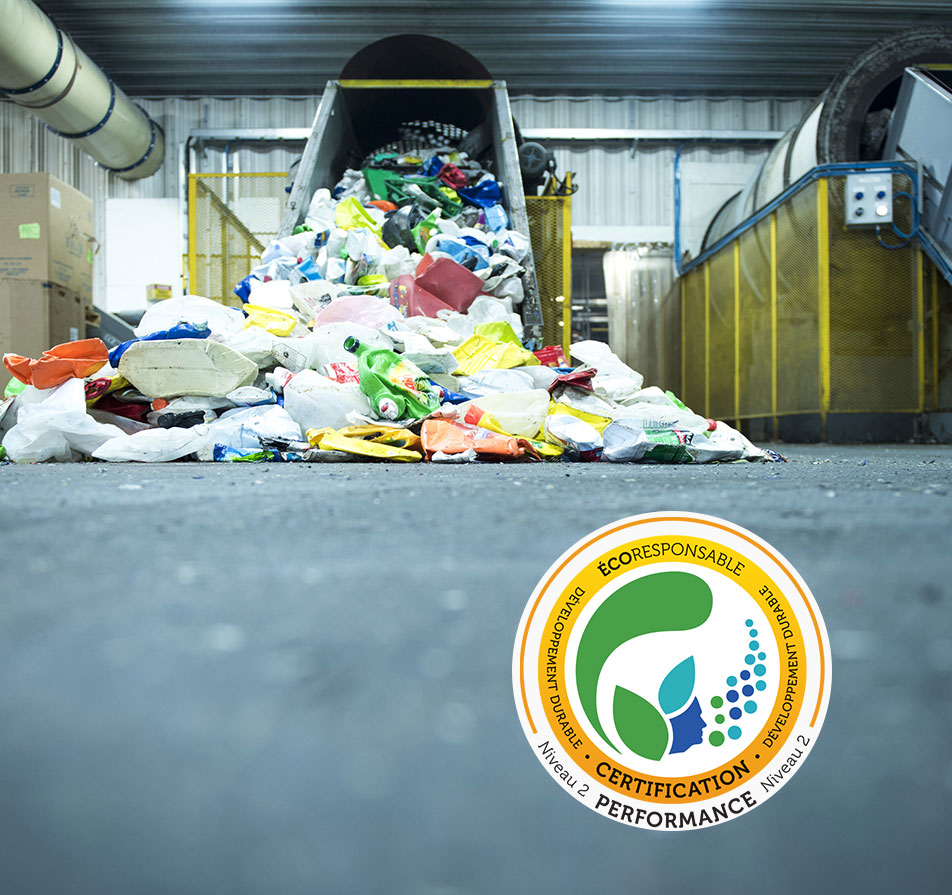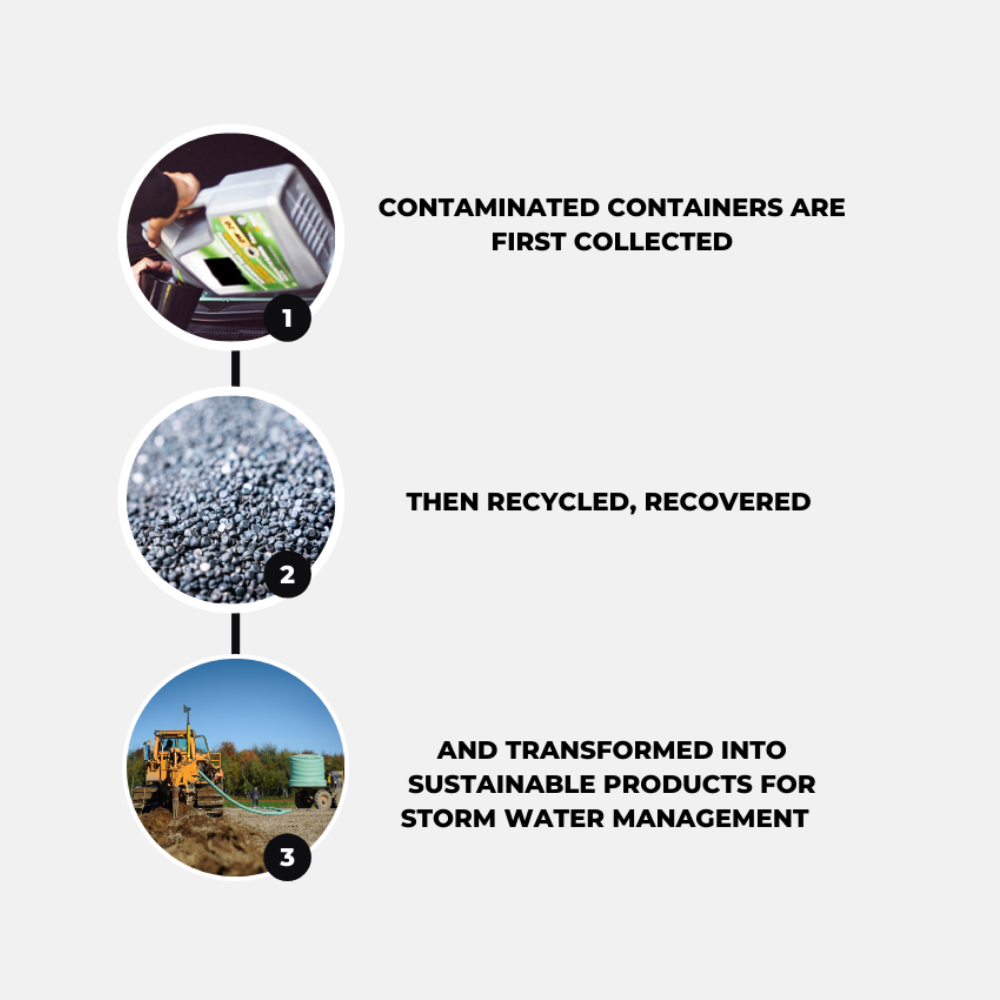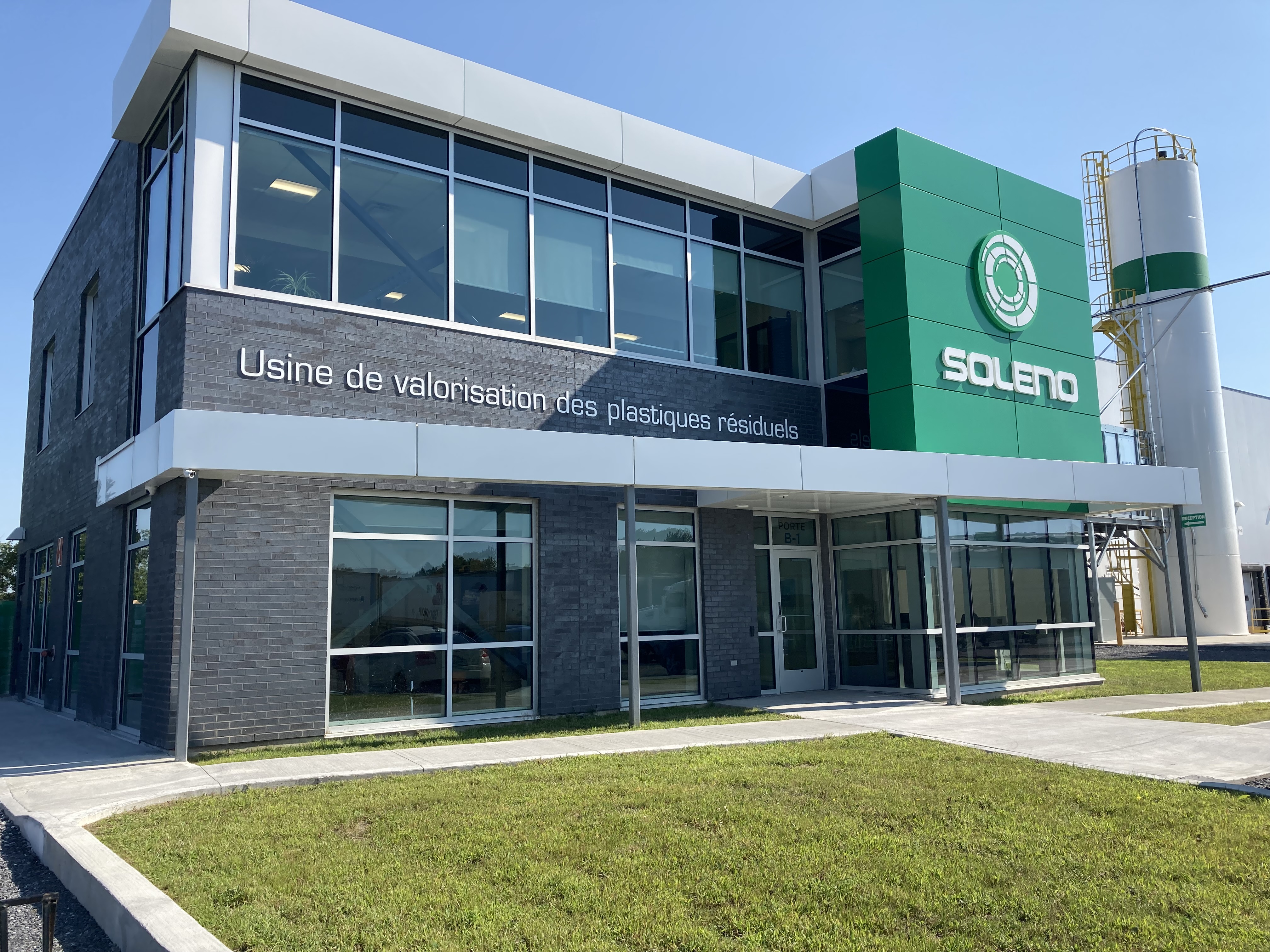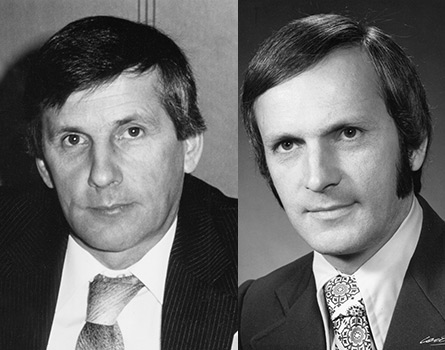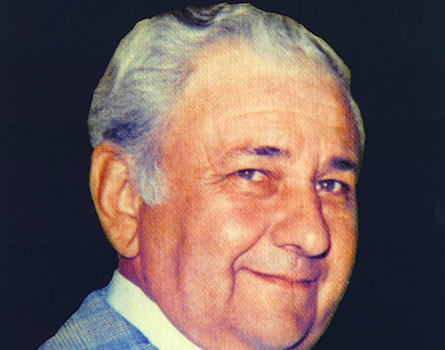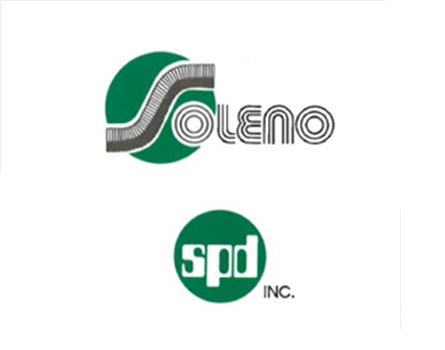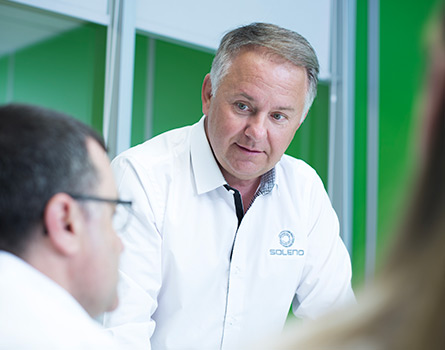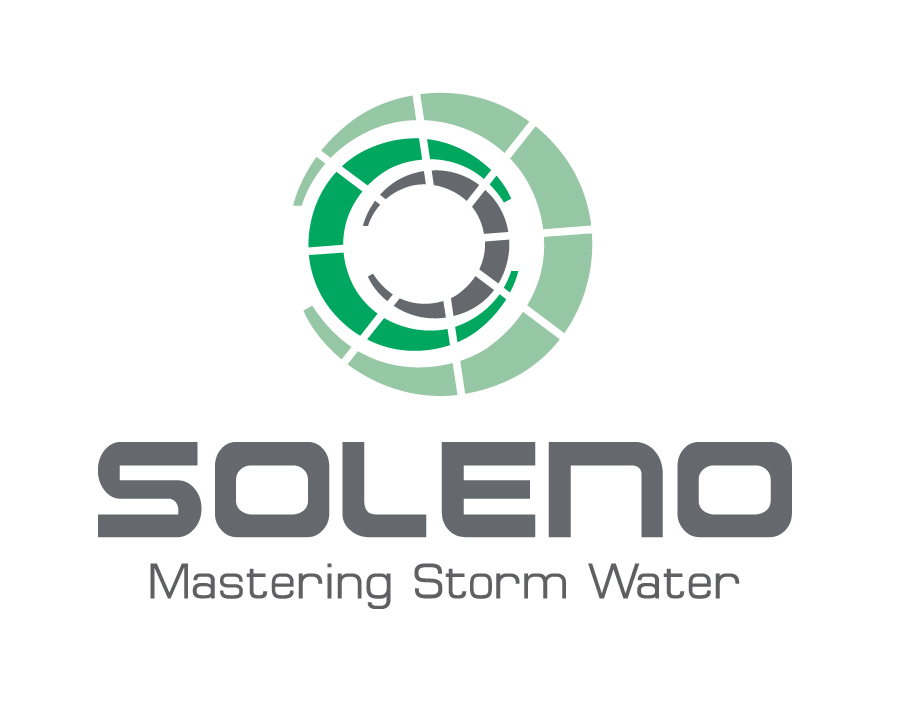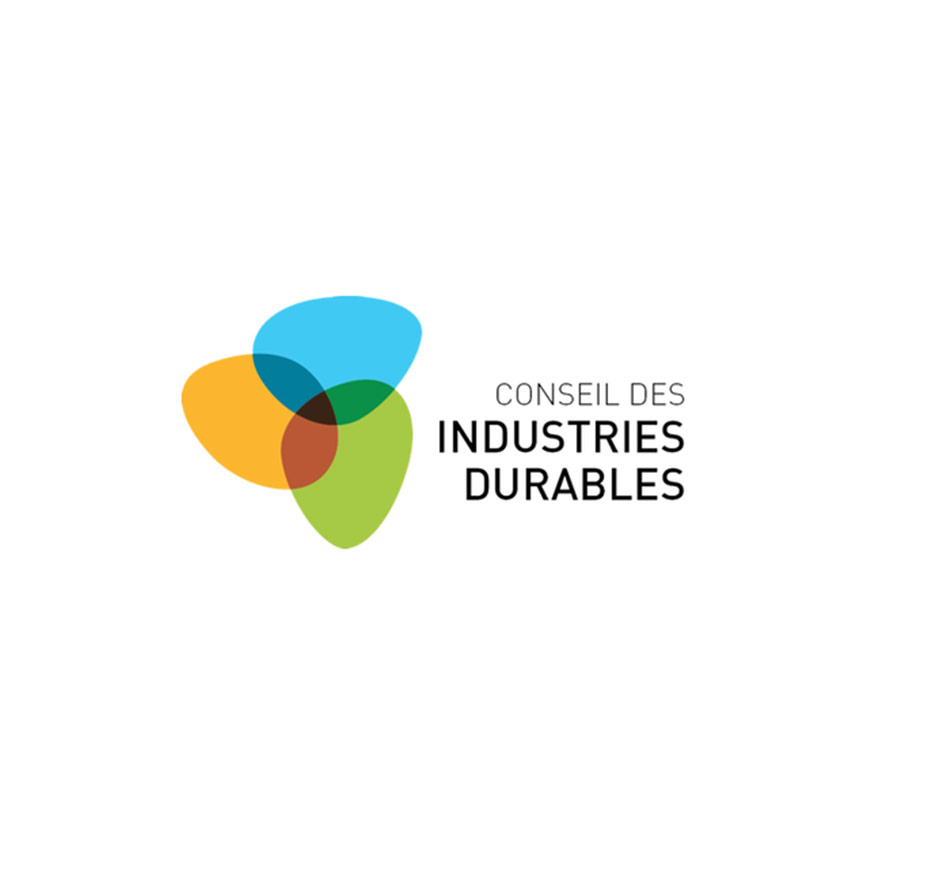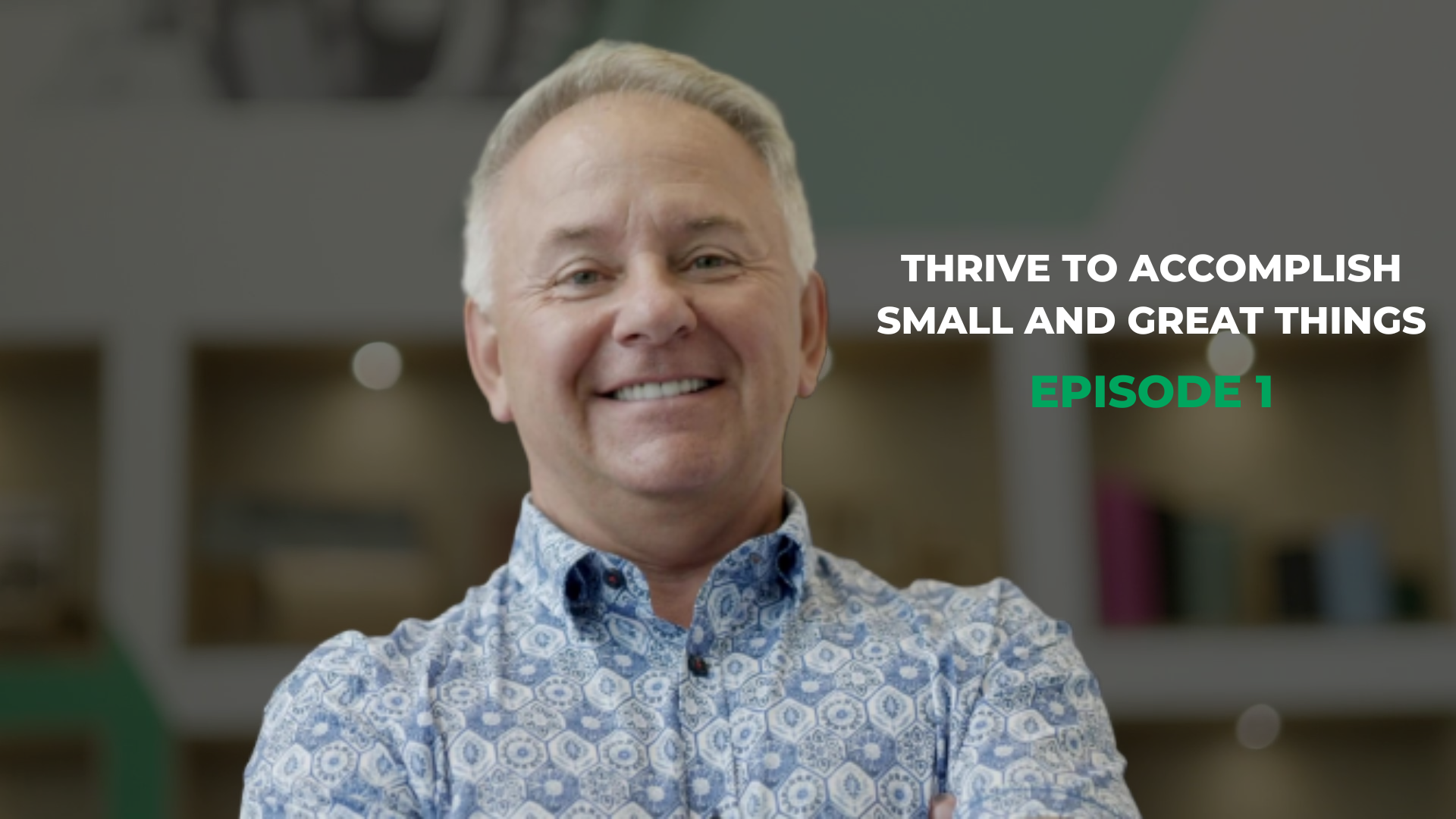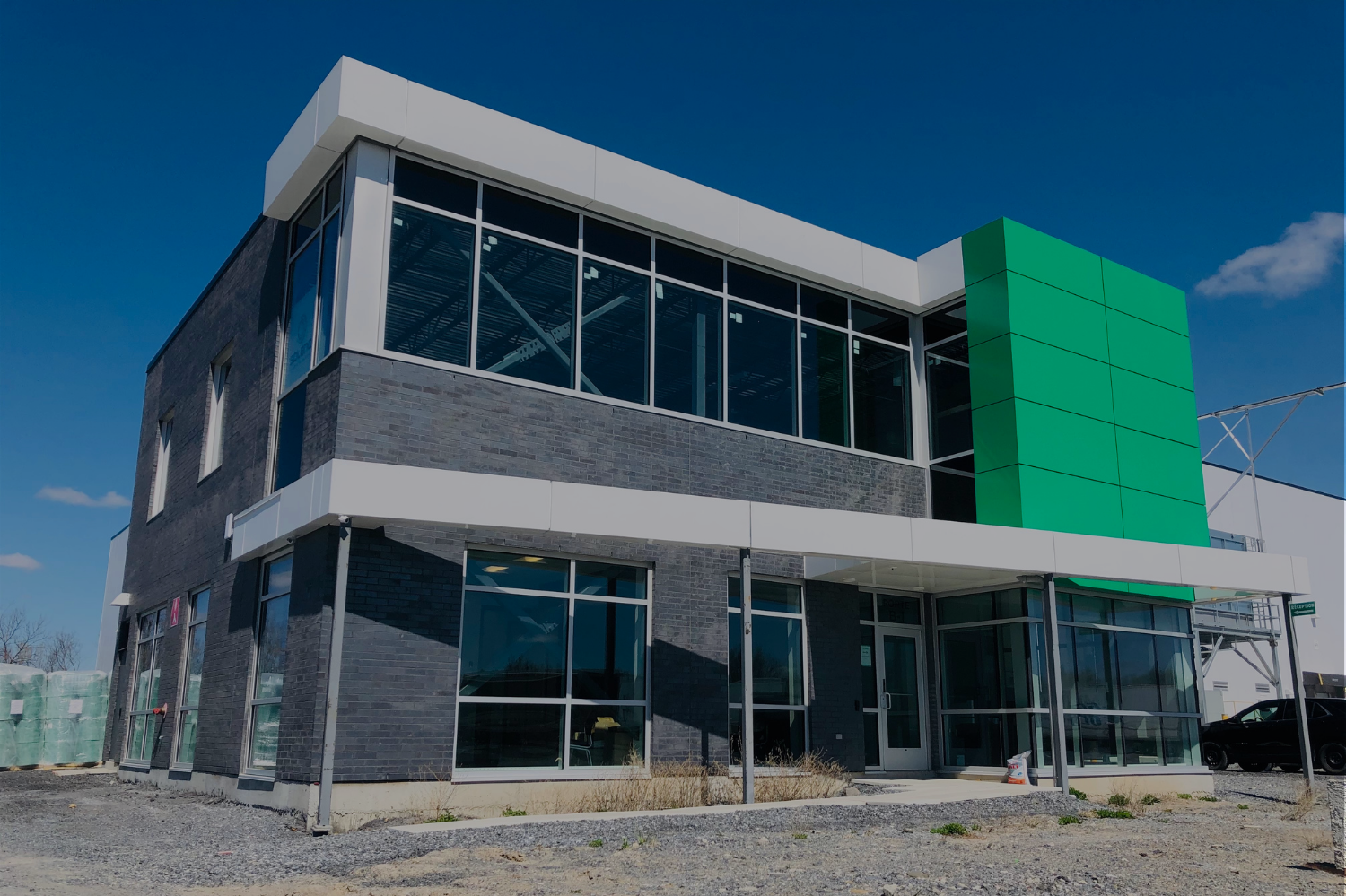Thrive to do better - Web Series
The web series Thrive to do better is an incursion into the Soleno universe with the objective of understanding the challenges and issues of recycling in Canada as well as the solutions implemented by the company to offer a second life to post-consumer plastics.
Throughout the 5-episode series, you will travel from the recycling bin, to the implementation of solutions in the field, to the revalorization of plastic and the innovation pole.
Discover the behind-the-scenes of a Canadian company that recycles and transforms more than 150,000,000 plastic containers into essential and sustainable products every year.
